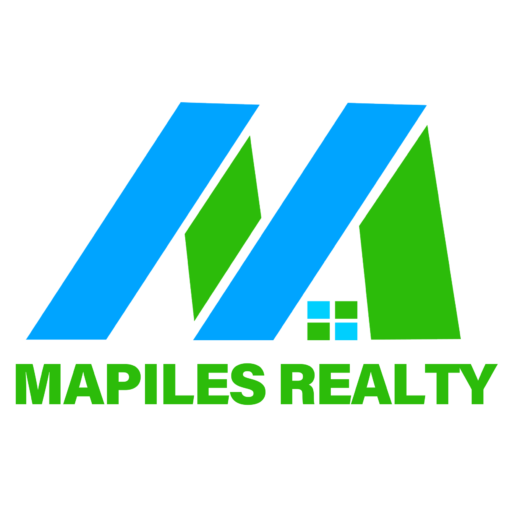Buying or selling a property is one of the most significant financial decisions you’ll make, and choosing the right real estate agent plays a vital role in ensuring a successful and satisfying transaction. A skilled agent can simplify the process, provide valuable insights, and help you achieve your real estate goals. In this article, we’ll explore essential tips for selecting the right real estate agent, along with red flags to watch for during your search.
Tips for Choosing the Right Real Estate Agent
1. Start with Research
Begin your search by seeking recommendations from friends, family, and colleagues who have had positive experiences with real estate agents. You can also check online reviews, browse agent websites, and review local market trends. This will give you a starting point to identify reputable agents in your area.
2. Verify Credentials and Experience
Ensure the agent is fully licensed and is a member of the local real estate board or association. A licensed agent is held to a certain standard of practice. Also, consider their experience in the type of transaction you’re pursuing—whether it’s buying, selling, or investing in residential or commercial properties.
3. Interview Multiple Agents
Don’t settle for the first agent you find. It’s important to meet with several candidates to evaluate their expertise, communication style, and compatibility with your needs. During interviews, ask about their experience, how they approach their work, and how they can assist you in achieving your goals.
4. Check Their Track Record
Request a list of recent transactions the agent has been involved in. This will give you a sense of their success rate and the types of properties they specialize in. A strong track record of closing deals similar to yours can be a good indication of their ability to handle your transaction successfully.
5. Local Market Knowledge
A deep understanding of the local market is essential. An agent who is familiar with the area can provide valuable insights into neighborhoods, property values, and current market trends. They’ll also be more likely to understand pricing strategies and the nuances that can influence your buying or selling experience.
6. Ask for References
Don’t hesitate to ask for references from past clients. Contacting these references can give you an honest view of the agent’s professionalism, reliability, and customer service. It’s also an opportunity to learn about how the agent handled challenges during past transactions.
7. Effective Communication
Choose an agent who communicates effectively and promptly. Clear communication is vital throughout the buying or selling process. Ensure the agent is responsive to your calls, emails, and messages and that they take the time to explain important details in a way that makes sense to you.
8. Negotiation Skills
An excellent real estate agent should be a skilled negotiator. Ask about their approach to negotiation and how they plan to get you the best possible deal. Whether you’re buying or selling, strong negotiation skills are essential for achieving favorable terms.
9. Fee Structure
Before proceeding, make sure you understand the agent’s fee structure. Agents typically charge commission fees based on the final sale price of the property. Discuss the commission rate upfront and ensure you’re comfortable with the agreement and the terms.
Red Flags to Watch Out For
While it’s important to look for qualities that make an agent a great fit, be aware of the following red flags that could signal potential issues:
1. Lack of Transparency
If an agent is vague or evasive about their credentials, past performance, or fees, it could be a red flag. You need an agent who is open and honest about their qualifications, experience, and the cost of their services. Transparency is crucial to building trust and ensuring a smooth process.
2. Inadequate Market Knowledge
An agent who lacks knowledge of the local market may struggle to provide the best advice or may not be able to spot the right opportunities. If they seem unfamiliar with local trends, comparable sales, or neighborhood nuances, it’s worth considering other options.
3. Limited Availability
An agent who is difficult to reach, doesn’t respond promptly to calls or emails, or is frequently unavailable can create unnecessary delays in your transaction. A good agent should be easily accessible and provide timely responses to your questions and concerns.
4. Pressure Tactics
If an agent employs high-pressure sales tactics, such as rushing you into making a decision or trying to persuade you to act against your best interests, it’s a sign to reconsider. A reputable agent will always respect your pace and help guide you toward the right decision.
5. Lack of References
If an agent is unwilling or unable to provide references from past clients, it could indicate they have not handled enough successful transactions or that previous clients were dissatisfied with their services. It’s important to choose an agent with a proven track record of satisfied clients.
Choose Wisely for a Smooth Real Estate Experience
Selecting the right real estate agent is essential to ensuring a positive and successful property transaction. By following the tips outlined in this article and being mindful of potential red flags, you’ll be well-equipped to choose an agent who is knowledgeable, trustworthy, and aligned with your goals. A skilled real estate agent is more than just a transactional partner—they are a guide who can help make the complex process of buying or selling a home smoother and more rewarding. Choose wisely, and enjoy a seamless real estate experience.





